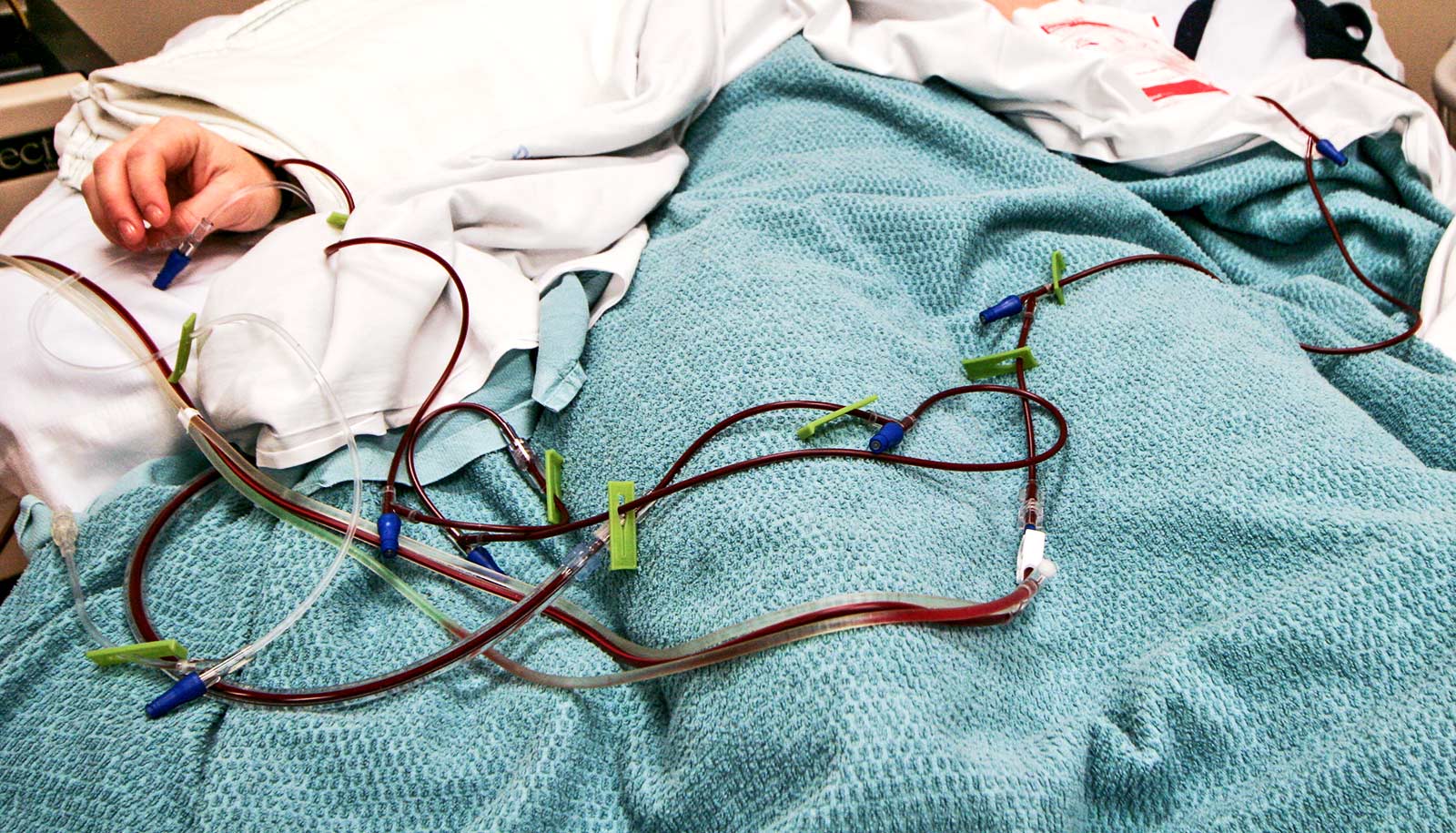A clinical trial that included both adolescents and adults with advanced Hodgkin lymphoma shows that 94% of the patients treated with an experimental immunotherapy plus chemotherapy were cancer-free or had no progression of disease after one year.
The results are likely to change standard treatment for this type of cancer, says Jonathan Friedberg, director of the University of Rochester Wilmot Cancer Institute. He is senior investigator of the study and chair of the lymphoma committee at the SWOG Cancer Research Network, which designed the S1836 trial as a part of the National Cancer Institute-funded National Clinical Trials Network.
“We hypothesized that the newer treatment would turn out to be most beneficial for patients,” Friedberg says, “but the magnitude of the benefit exceeded our expectations.”
The American Society of Clinical Oncology (ASCO) plans to showcase the research at a plenary session on June 4 because of its high merit and great impact on oncology research. ASCO is the largest meeting of oncologists in the world.
Hodgkin lymphoma (HL) is a rare cancer that afflicts mostly young people. The randomized, phase 3 study compared standard treatment with chemotherapy and brentuximab vedotin (brand name: Adcetris) against the immunotherapy, nivolumab (brand name: Opdivo) plus chemotherapy. About 86% of the people in the standard treatment group achieved remission, compared to the 94% who received the newer therapy.
When the strong data came in, the National Cancer Institute (NCI) ordered that the trial stop early to facilitate a faster review by the US Food and Drug Administration for ultimate approval of nivolumab-AVD as an initial treatment for stage 3 or 4 HL.
ASCO also featured the research at a June 3 press program, hosted by lead investigator Alex Herrera, chief of the division of lymphoma at City of Hope, a large cancer research and treatment organization based in Los Angeles.
“The results are remarkable. The combination of nivolumab and chemotherapy is potent and safe in patients with stage 3 or 4 classic Hodgkin lymphoma as an initial treatment,” Herrera says. “This is indeed great news for patients with this cancer, as there is another effective and safe option for them.”
Hodgkin lymphoma affects the lymphatic and immune systems. Early symptoms can be vague, and sometimes HL is overlooked in otherwise young, healthy people. Symptoms may include fatigue, weight loss, fever, night sweats, and swollen lymph nodes. Patients have a median age of 29.
The chances of a cure for early-stage Hodgkin lymphoma are 90% to 100%. When the disease has advanced, remission rates drop to about 82%.
Nivolumab is already being used to treat HL that has spread later or relapsed. This study evaluated it as front-line therapy in people who had advanced disease when they were newly diagnosed. The goal was to improve the remission rates in those patients, Friedberg says.
A key part of the study design, he adds, was to include pediatric patients ages 12 and older. The standard treatment for them has often included radiation therapy, which carries risks of serious side effects later in life, such as second cancers, thyroid dysfunction, and heart disease.
“By eliminating radiation for children enrolled in this trial, we essentially took away the risks of many toxic late effects,” Friedberg says. “But we only have one year of follow-up data for our trial at this point, and we will continue to watch for side effects in the future.”
Nearly 1,000 individuals were enrolled in the study between July of 2019 and October of 2022, at more than 200 institutions in North America. The number of Black and Latino patients was aligned with the general population, which was also a goal of researchers.
Data show that thus far, 11 deaths occurred among patients who received standard therapy, compared to four deaths in the immunotherapy group.
Hundreds of investigators were involved through SWOG and the NCTN. In addition to the NCI, which is part of the National Institutes of Health, Bristol-Myers Squibb, which produces nivolumab, also supported the research through a cooperative agreement between the company and the NCI.
“This study speaks to the power of these networks and the transformative research that the National Cancer Institute funds,” says Friedberg.
Source: University of Rochester


